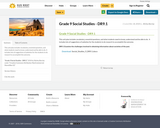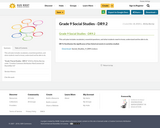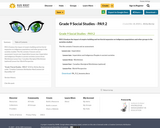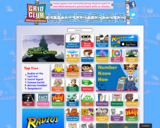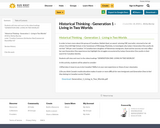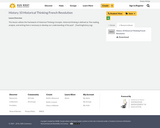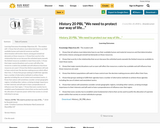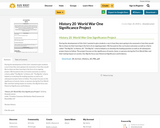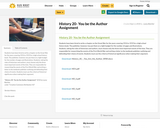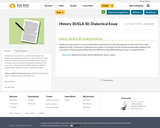The new website for the Heritage Fairs (& High School Heritage Challenge) is now live and ready to accept project submissions for the Virtual Heritage Fair (grades 4-8) and the High School Heritage Challenge (grades 9-12)!
The Heritage Fair program provides the opportunity for students and their families, teachers and communities to learn about diverse Living Heritage projects.
There is still lots of time to prepare and submit a project to these contests, as the deadline is Monday, April 24. The online contests are open to all students in Saskatchewan.
Links to register and submit projects are on the homepage, as well as available in the dropdown menus for each respective contest.
Be sure to check out the Heritage Fairs toolkit that will give you topic inspiration, a list of popular research sources, and a detailed breakdown on how to create your presentation and share your findings. The toolkit is available in both English and French.
Le nouveau site web des Fêtes du patrimoine (et du Défi du patrimoine au secondaire) est maintenant en ligne et prêt à accepter les soumissions de projets pour la Fête du patrimoine virtuelle (niveaux 4 à 8) et le Défi du patrimoine au secondaire (niveaux 9 à 12) !
Le programme des Fêtes du patrimoine offre l'occasion aux élèves et à leurs familles, aux enseignants et aux communautés d'en apprendre davantage sur divers projets de patrimoine vivant.
Il reste encore beaucoup de temps pour préparer et soumettre un projet à ces concours, car la date limite est le lundi 24 avril. Les concours en ligne sont ouverts à tous les élèves en Saskatchewan.
Les liens pour s'inscrire et soumettre des projets se trouvent sur la page d'accueil, ainsi que dans les menus déroulants de chaque concours respectif.
Assurez-vous de consulter la trousse des Fêtes du patrimoine qui vous fournira de l'inspiration pour votre sujet, une liste de sources de recherche populaires et une description détaillée sur la création de votre présentation et le partage de vos résultats. La trousse est disponible en anglais et en français.
